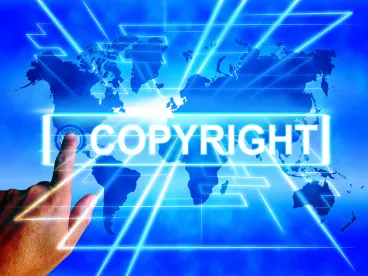The Supreme Court of the United States granted certiorari in a sovereign immunity copyright case to consider the abrogation issue in the context of copyright law. Allen v. Cooper, Case No. 18-877 (S. Ct. June 5, 2019).
Issue Presented: Whether Congress validly abrogated state sovereign immunity via the Copyright Remedy Clarification Act in providing remedies for authors of original expression whose federal copyrights are infringed by states.
Issue Restated in Opposition: The Copyright Remedy Clarification Act purports to abrogate the states’ sovereign immunity for alleged violations of federal copyright law. Did the court of appeals correctly hold that the Copyright Remedy Act’s abrogation of state sovereign immunity was invalid?
At the district court, the State’s motion to dismiss a copyright infringement action based on a sovereign immunity defense was denied based on the 1990 Copyright Remedy Act. Under the Act, any State, any instrumentality of a State, and any officer or employee of a State or instrumentality of a State acting in his or her official capacity shall not be immune, under the 11th Amendment of the Constitution of the United States or under any other doctrine of sovereign immunity, from suit in federal court by any person, including any governmental or nongovernmental entity, for a violation of any of the exclusive rights of a copyright owner provided by sections 106 through 122, for importing copies of phonorecords in violation of section 602, or for any other violation under this title. (Emphasis supplied). 17 USC § 511(a).
In dismissing the State’s motion, the district court declined to follow the US Court of Appeals for the Fifth Circuit, as well as several district courts that have found the abrogation clause of the statute to be invalid. On appeal, the US Court of Appeals for the Fourth Circuit reversed, explaining that its “conclusion is required by [the 1999 Supreme Court decision in] Florida Prepaid” and that Congress did not have the authority to abrogate immunity from copyright infringement under the Copyright Clause, Commerce Clause and Section 5 of the 14th Amendment.
Practice Note: Although Florida Prepaid arose under the Patent Law, almost all district courts that have addressed the issue of abrogation under the Copyright Law have followed it. It should be noted that the Supreme Court has significantly changed since Florida Prepaidwas decided (5–4) in 1999. Only Justice Thomas remains from the Florida Prepaid majority, and only Justices Ginsburg and Breyer remain from the dissent. On a related note, on June 14, 2019, the Federal Circuit decided an appeal in a state sovereign immunity case—Regentsof University of Minnesota v. LSI Corp., Case No. 18-1559—where a split Patent Trial and Appeal Board panel ruled that the State waived immunity from inter partes review (IPR) when it filed an infringement suit using the patent in IPR. In that case, the Federal Circuit ruled that state sovereign immunity does not apply in IPR, rejecting arguments to the contrary by the University of Minnesota.




 />i
/>i

